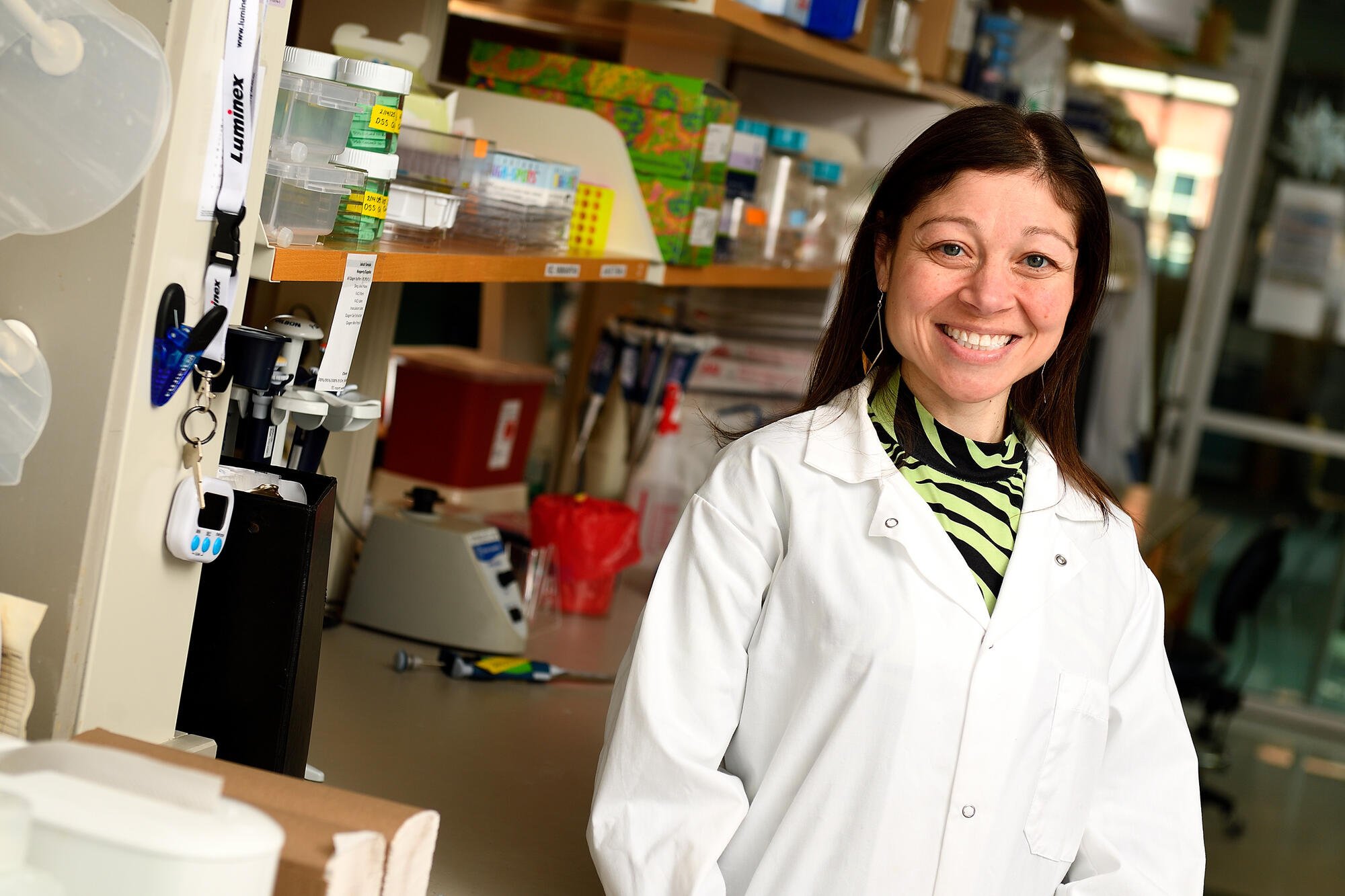Research Matters: Harnessing the body’s natural defense to fight illnesses

Research drives scientific progress. At Johns Hopkins and at institutions across the nation, dedicated scientists are uncovering knowledge and insights that lead to critical and lifesaving treatments and technologies. In the series “Research Matters,” we highlight groundbreaking research and the committed scientists making it happen at Johns Hopkins Biomedical Engineering.
Jamie Spangler, the William R. Brody Faculty Scholar and an associate professor of biomedical engineering and chemical and biomolecular engineering, oversees a lab of 33 scientists at Johns Hopkins who are developing new, targeted treatments that harness the power of the immune system.
With the backing of the National Institutes of Health, Spangler and her team use the body’s natural resources—its cytokines, antibodies, antigens, and T cells—to fight infectious diseases and cancer, as well as to stop or reverse the development of autoimmune disorders like multiple sclerosis, type 1 diabetes, rheumatoid arthritis, and colitis.
An award-winning scientist, Spangler and her team work at the forefront of immunoengineering, an emerging field that experts say is revolutionizing how complex diseases are treated. The lab uses an interdisciplinary approach at the interface of engineering, biology, and medicine to rewire the immune system in order to ward off disease. As Spangler puts it, “we use and manipulate molecules and proteins that exist in nature to reprogram aspects of our biology to intervene and reverse the disease process.”
Funded in large part by the NIH, the work of Spangler and her lab along with their many collaborators has led to dozens of breakthroughs and discoveries, including:
- Reprogramming regulatory T cells to suppress the immune system and stop the onset of inflammatory bowel disease and diabetes
- Engineering proteins to prevent tumors from developing and progressing in cancer patients
- Engineering chimeric antigen receptors to enable the body’s natural killer (NK) cells to fight acute myeloid leukemia
- Devising a fast, inexpensive way to detect SARS-CoV-2 (COVID-19) antibodies with commercial blood glucose monitors
“Research is the lifeblood of the advancement of society, allowing us to understand and navigate the world in which we live,” Spangler says.
